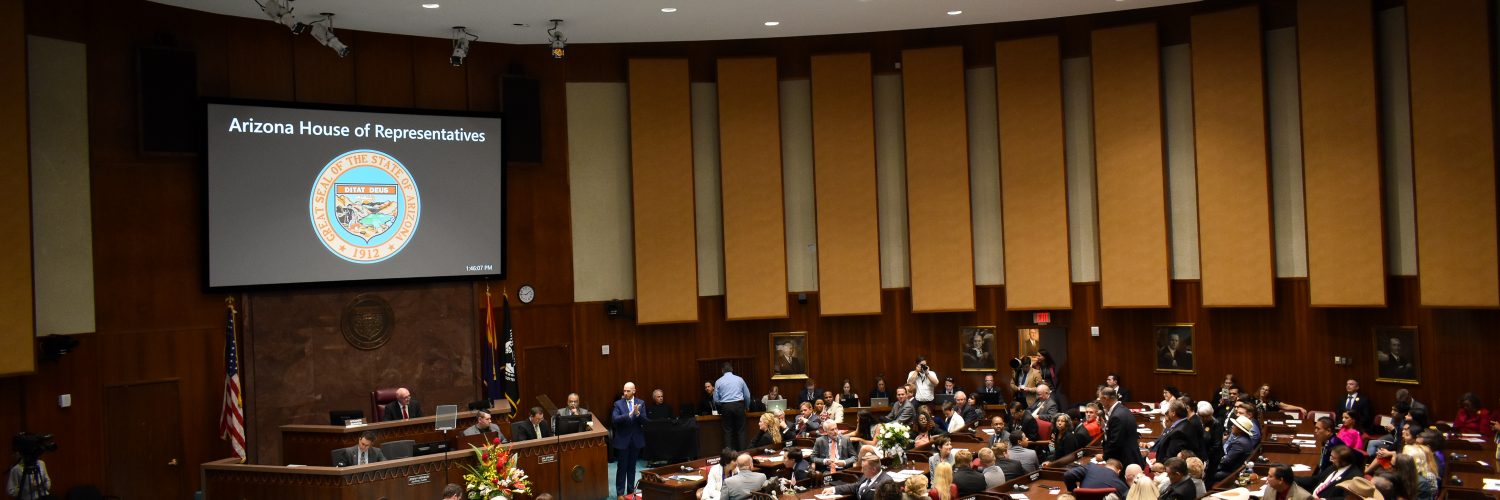Back in December of 2016 a seasoned observer of Arizona Democratic politics predicted to me that the plan on the left was to make the 2018 election “all about K-12 education” and to “run David Garcia for Governor.” I expressed skepticism at the time given that Garcia had announced to run for the Superintendent of Public Instruction, not for Governor. “Just wait” I was told. One teacher strike, a ballot referendum, a Garcia gubernatorial campaign and multiple examples of slanted K-12 reporting from the Arizona Republic later, I know better than to doubt this source.
The latest example of the last of this litany comes from a Republic investigation into (insert scary background music about here) model legislation and this ultimately circles back to Arizona’s Empowerment Scholarship Account. The main thing revealed by the two-year investigation is just how easily confirmation bias can lead even the most seasoned journalists astray. The investigation includes an analysis that appears to be designed to fit a predetermined narrative and airbrushes out crucial context. (Full disclosure: I participated in the development of the Arizona Empowerment Scholarship Accounts program and helped to author multiple model bills for the American Legislative Exchange Council (ALEC). If you keep reading you’ll see why none of that is nearly as scary as it sounds.)
Political scientists have studied the process of jurisdictions borrowing laws and concepts from each other, coining the term “policy diffusion.” Model bills are a tool that organizations across the political spectrum use to enable this process. Whether this is “good” or “bad” depends upon what is being diffused and your own point of view.
Trent England from the Oklahoma Council on Public Affairs noted that the practice of model legislation in the United States goes back to 1892 with the work of the Uniform Law Commission (ULC), which is still around today. ULC is still active today and you can take a look at their list of model bills here. Since 1892 a blizzard of other groups have developed model bills.
Recent decades have seen large organizations including lawmakers and private interests dedicated to developing model bills. ALEC is the oldest and most prominent center-right organization developing model legislation.
In a clever use of software designed to detect student plagiarism, the Republic’s story reveals that lawmakers have been more active in passing bills making use of ALEC language than those of a group of much younger and smaller left-wing groups. The scary music builds to a frightful crescendo, but this story is missing some important details and players.
Dr. Patrick Wolf of the University of Arkansas read the investigation and noted on social media:
@USATODAY spreads the deception that copycat legislation is an epidemic. Source of the problem is that @azcentral hid the fact that 99% of the bills they examined were NOT copycats. 1% is a rounding error, not a crisis.
Unlike the young and small left of center groups included in the analysis, the National Council of State Legislatures, which was founded in 1975 and has large conferences attended by state lawmakers and private interests and is best known for developing model legislation, however, was curiously air-brushed out of the analysis. So, if you are scoring at home the 1 percent of legislation inspired by model bills appears to tilt right if you exclude the largest left of center groups developing model legislation.
Next the Republic circles the story back to their two-minute hate on Arizona choice programs. On April 24 we were treated to this gem of a headline: Gaggle podcast: Arizona’s school voucher laws started as copycat legislation.
The gaggle podcast goes on to repeat the claim that Arizona’s Empowerment Scholarship Account program started as model legislation, but this is not true. In fact, Arizona lawmakers passed the ESA program before model legislation was developed. ALEC’s model bill looks like Arizona’s ESA statute because it was based on Arizona’s statute, not the other way around. My knowledge on this front is of the first-hand variety. I would have been happy to have shared the actual sequence of events if any of the reporters had taken the time to call either me or any of us involved in crafting the statute or developing the model legislation.
This in fact is typical of the model legislation process—a set of lawmakers pass legislation, and then develop a model bill for lawmakers who may be interested in following in their footsteps.
Arizona an example to others in K-12? Yes indeed. We have scoreboard in the national tests:
As Pericles stated during the funeral oration in the History of the Peloponnesian War, “Our constitution does not copy the laws of neighboring states; we are rather a pattern to others than imitators ourselves.” When it comes to school choice policies this is certainly the case. Arizona was the first state to pass both scholarship tax credits and education savings accounts. I’ve lost track of how many states have passed similar tax credit programs, and the count stands at six for ESA programs. Whether these bills draw upon model legislation or not is ultimately inconsequential as they all go through a democratic process and debate in order to be adopted. Moreover, anyone and everyone can write model legislation, which is simply a tool in the normal pluralistic competition of ideas and values in the American democracy.
In the end, however, I cannot improve upon Dr. Wolf’s summary: “This front-page @azcentral story is the biggest #NothingBurger in education reporting history,” Wolf stated. “The actual evidence shows the exact opposite of what the reporters claim. #ChickenLittle”

















Add comment